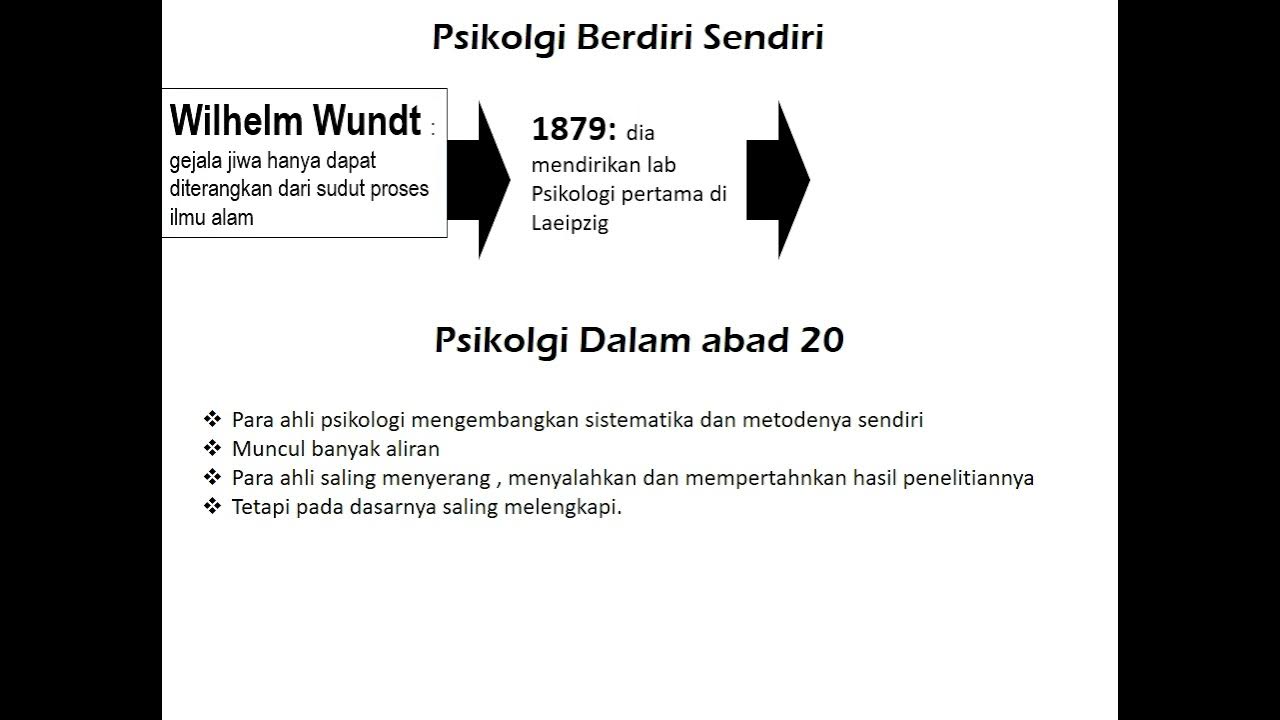Cognitive Psychology explained in less than 5 minutes
Summary
TLDRThe script delves into the cognitive revolution of the mid-20th century, contrasting behaviorism with the emergence of cognitive psychology. It highlights cognitive psychology's focus on internal mental processes like learning, memory, and problem-solving, using the human mind as a computer metaphor. The script also touches on the evolution of cognitive psychology, its intersection with social and developmental psychology, and the rise of cognitive neuroscience due to advanced brain imaging techniques. It concludes by emphasizing the benefits of interdisciplinary research in psychology.
Takeaways
- 🌟 Cognitive psychology emerged as a response to the limitations of behaviorism, focusing on internal mental processes in addition to observable behaviors.
- 💡 The cognitive revolution marked a significant shift in the field of psychology, emphasizing the study of mental processes like learning, memory, language, and problem-solving.
- 🖥️ Cognitive psychology uses the computer metaphor to understand the human mind, with early concepts mirroring the simplicity of early computing machines and evolving with technological advancements.
- 🧠 The term 'cognition' refers to the acquisition, storage, and utilization of knowledge, highlighting the broad scope of cognitive processes.
- 🌐 As technology advanced, so did the cognitive metaphor, moving from simple computing to complex neural networks and cloud computing.
- 🔬 Cognitive neuroscience is a growing interdisciplinary field that combines cognitive psychology with brain imaging techniques to study the physiological underpinnings of mental processes.
- 📈 The development of sophisticated brain imaging techniques, such as fMRI and PET, has allowed researchers to observe the brain's activity during psychological tasks, opening new research opportunities.
- 🔄 There is now a more complementary relationship between different psychological approaches, indicating a maturing field where specialties overlap and inform each other.
- 🔍 Cognitive psychology has expanded into other areas of psychology, such as social and developmental psychology, which also explore the hidden cognitive processes at work.
- 📚 Piaget's stages of development are an example of how developmental psychology examines the growth of cognitive processes in individuals.
- 🤝 The script suggests that interdisciplinary research, where different specialties work together, can enhance our understanding of the human mind.
Q & A
What was the prevailing belief in psychology before the emergence of cognitive psychology?
-Before cognitive psychology, the field was dominated by behaviorism, which believed that psychology should focus on studying people's behaviors.
Why were some psychologists frustrated with behaviorism?
-Some psychologists were frustrated because behaviorism only studied behaviors and did not account for the internal mental processes that were occurring.
What is the fundamental focus of cognitive psychology?
-Cognitive psychology focuses on the study of mental processes and complex behaviors, aiming to understand how external behaviors are facilitated by internal mental processes.
How does cognitive psychology view the relationship between behaviors and mental processes?
-Cognitive psychology does not dismiss the importance of behaviors; instead, it seeks to connect external behaviors with the internal mental processes that enable them, such as learning, memory, language development, and problem-solving.
What is the most prevalent metaphor used in cognitive psychology to describe the human mind?
-The most prevalent metaphor in cognitive psychology is that the human mind is like a computer.
How has the development of computer science influenced the metaphor used in cognitive psychology?
-As computer science has advanced, so has the scope of the computer metaphor in cognitive psychology, evolving from simple computing machines to the more complex neural networks and cloud network computing.
What does the term 'cognition' mean in the context of cognitive psychology?
-In cognitive psychology, 'cognition' refers to all the ways in which knowledge is acquired, stored, and used.
How has cognitive psychology contributed to other psychological specialisms?
-Cognitive psychology has influenced other psychological specialisms, such as social psychology, which examines hidden cognitive processes resulting from interpersonal and environmental interactions, and developmental psychology, which studies the development of cognitive processes.
What is cognitive neuroscience and how did it emerge?
-Cognitive neuroscience is a discipline that emerged from the intersection of cognitive psychology and the study of the brain's physiological processes. It was facilitated by advancements in brain imaging techniques, allowing scientists to observe the brain's activity during psychological tasks.
How have new technologies in brain imaging impacted the field of cognitive psychology?
-New technologies like functional magnetic resonance imaging (fMRI) and positron emission tomography (PET) have allowed psychologists to observe the brain in action, providing insights into learning, memory, and neural network activation, thus opening up new research opportunities.
What is the key message from the development of cognitive psychology regarding the relationship between different psychological specialisms?
-The key message is that research outcomes are likely to be enhanced when different psychological specialisms work together and are linked, rather than being kept separate.
Outlines

此内容仅限付费用户访问。 请升级后访问。
立即升级Mindmap

此内容仅限付费用户访问。 请升级后访问。
立即升级Keywords

此内容仅限付费用户访问。 请升级后访问。
立即升级Highlights

此内容仅限付费用户访问。 请升级后访问。
立即升级Transcripts

此内容仅限付费用户访问。 请升级后访问。
立即升级浏览更多相关视频

A Brief History of Psychology: From Plato to Pavlov

Sejarah Perkembangan Psikologi

Sejarah Lahirnya Ilmu Psikologi | Seri Sejarah Psikologi

SEJARAH PSIKOLOGI PENDIDIKAN

Approaches- AQA Psychology UNDER 20 MINS! Quick Revision for Paper 2

A Psicologia e o Modelo Biopsicossocial (Aula M3.1 - Curso O Sintoma)
5.0 / 5 (0 votes)
